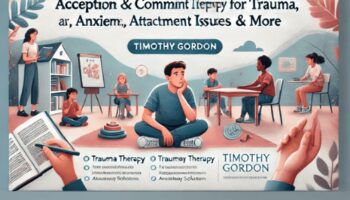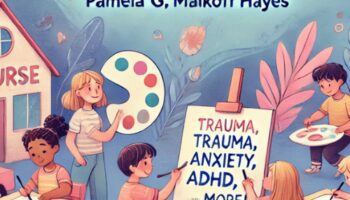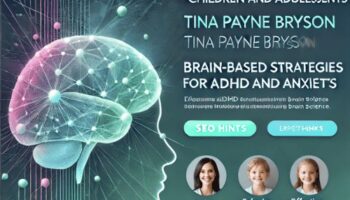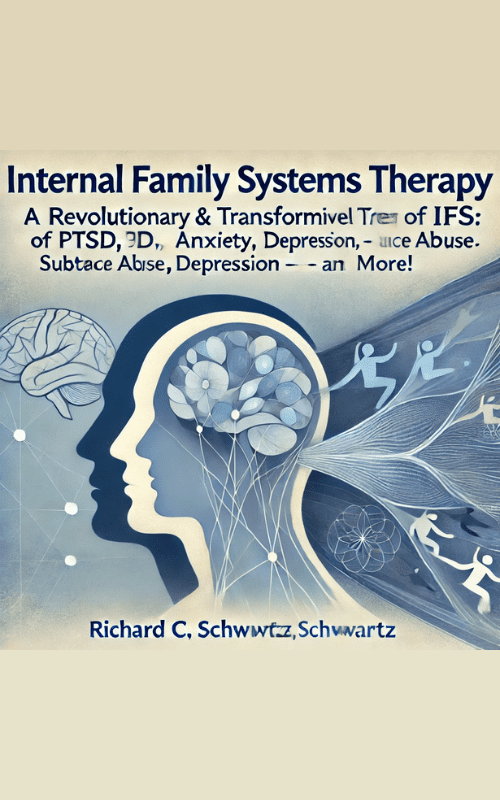Internal Family Systems Therapy (IFS)-A Revolutionary & Transformative Treatment of PTSD, Anxiety, Depression, Substance Abuse-and More! – Richard C. Schwartz
Internal Family Systems Therapy (IFS)-A Revolutionary & Transformative Treatment of PTSD, Anxiety, Depression, Substance Abuse-and More! – Richard C. Schwa…
Overview
Salepage check: Internal Family Systems Therapy (IFS)-A Revolutionary & Transformative Treatment of PTSD, Anxiety, Depression, Substance Abuse-and More!
Author: Richard C. Schwartz
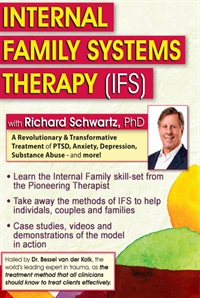
- Faculty:
- Richard C. Schwartz
- Duration:
- 3 Hours 59 Minutes
- Format:
- Audio and Video
- Copyright:
- Oct 07, 2016
Description
- Learn the Internal Family skill-set from the Pioneering Therapist
- Take away the methods of IFS to help individuals, couples and families
- Teach clients a new way to identify with their “self”, maximize their internal “leadership” qualities and gain control over traumatic experiences
Dr. Schwartz’s presentation will provide a foundation in the Internal Family Systems (IFS) method and its use with attachment and trauma. IFS and its clinical applications will be demonstrated through a lively combination of lecture and discussion.
Developed over the past two decades, the IFS model is one of the fastest growing approaches to psychotherapy today. IFS offers both a conceptual umbrella under which a variety of practices and different approaches can be grounded and guided, and a set of original techniques for creating safety and fostering self-to-self connection in couples and families. Take home skills and tools that you can use in your practice and improve client outcomes.
Handouts
| Manual (0.73 MB) | 20 Pages | Available after Purchase |
Outline
Multiplicity & the Self
- Evolution of the IFS approach
- Multiplicity of the mind
- Stumbling on to the self
Internal Family System (IFS) with Trauma
- Protector parts and exiles
- IFS technique:
- Honoring protectors
- Dealing with the overwhelm
- Witness and retrieve exiles
- Unburden trauma memories, beliefs and emotions
Parts and Self of the Therapist
Therapist-client Relationship
Keys to Work Safely with Trauma Clients
Faculty
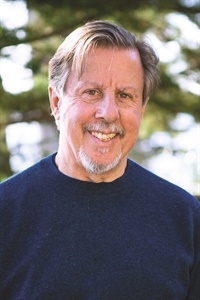
Richard C. Schwartz, Ph.D. Related seminars and products: 23
Owner
The Center for Self Leadership
Richard Schwartz, Ph.D., earned his Ph.D. in marriage and family therapy from Purdue University, after which he began a long association with the Institute for Juvenile Research at the University of Illinois at Chicago, and more recently at The Family Institute at Northwestern University, attaining the status of associate professor at both institutions. He is co-author, with Michael Nichols, of Family Therapy: Concepts and Methods, the most widely used family therapy text in the United States.
Dr. Schwartz developed Internal Family Systems in response to clients’ descriptions of experiencing various parts – many extreme – within themselves. He noticed that when these parts felt safe and had their concerns addressed, they were less disruptive and would accede to the wise leadership of what Dr. Schwartz came to call the “Self.” In developing IFS, he recognized that, as in systemic family theory, parts take on characteristic roles that help define the inner world of the clients. The coordinating Self, which embodies qualities of confidence, openness, and compassion, acts as a center around which the various parts constellate. Because IFS locates the source of healing within the client, the therapist is freed to focus on guiding the client’s access to his or her true Self and supporting the client in harnessing its wisdom. This approach makes IFS a non-pathologizing, hopeful framework within which to practice psychotherapy. It provides an alternative understanding of psychic functioning and healing that allows for innovative techniques in relieving clients symptoms and suffering.
In 2000, Richard Schwartz founded The Center for Self Leadership in Oak Park, Illinois. Dr. Schwartz is a featured speaker for many national psychotherapy organizations and a fellow of the American Association for Marriage and Family Therapy, and he serves on the editorial boards of four professional journals. He has published four books and over 50 articles about IFS. His books include Internal Family Systems Skills Training Manual (with Frank Anderson, M.D. and Martha Sweezy, Ph.D) (PESI, 2017), Internal Family Systems Therapy (Guilford Press, 1997), Introduction to the Internal Family Systems Model (Tarcher, 2001), and The Mosaic Mind (with Regina Goulding) (Trailheads, 2003), as well as Metaframeworks (with Doug Breunlin and Betty Karrer) (Jossey-Bass, 1997). Dr. Schwartz lives and practices in Brookline, MA and is on the faculty of the Department of Psychiatry, Harvard School of Medicine.
Speaker Disclosures:
Financial: Richard Schwartz is the Founder of The Center for Self Leadership. He receives a speaking honorarium from PESI, Inc.
Non-financial: Richard Schwartz is a Fellow and member of the American Association for Marital and Family Therapy.
Curriculum
FAQs
Requirements
- Professional Background: Participants should have a foundational understanding of psychotherapy or counseling practices.
- Educational Prerequisites: A degree in psychology, counseling, social work, or a related field is recommended.
- Technical Needs: Reliable internet access and a device capable of streaming video content.
Features
- Comprehensive Curriculum: In-depth exploration of IFS principles and their application to various mental health conditions.
- Expert Instruction: Led by Richard C. Schwartz, the founder of IFS, ensuring authoritative and insightful teaching.
- Practical Techniques: Step-by-step guidance on implementing IFS strategies in clinical settings.
- Case Studies: Real-world examples illustrating the effectiveness of IFS therapy.
- Continuing Education Credits: Opportunity to earn CE credits upon course completion.
Target audiences
- Mental Health Professionals: Therapists, counselors, psychologists, and social workers seeking to enhance their therapeutic techniques.
- Medical Practitioners: Psychiatrists and primary care physicians interested in integrative approaches to mental health.
- Graduate Students: Individuals pursuing advanced degrees in mental health disciplines.
- Life Coaches: Professionals aiming to incorporate therapeutic models into their coaching practices.


